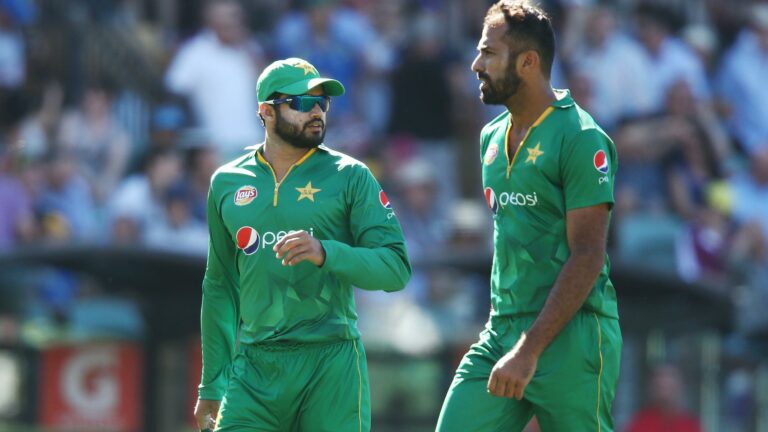How IPL Coaches Develop Bench Strength
betbook250 com login, 11xplay reddy login, yolo247:The IPL (Indian Premier League) is one of the most popular and competitive cricket leagues in the world, featuring some of the best players from around the globe. While the focus is often on the star players who shine on the field, the role of coaches in developing bench strength should not be overlooked. Bench strength refers to the depth of talent available on the team beyond the starting lineup. Developing strong bench strength is crucial for a team’s success in a long and grueling tournament like the IPL.
So, how do IPL coaches go about developing bench strength? Let’s take a closer look at some of the key strategies they employ:
1. Talent Identification
One of the first steps in developing bench strength is talent identification. IPL coaches keep a close eye on domestic cricket leagues, age-group tournaments, and other platforms to identify promising young players who have the potential to perform at the highest level. They look for players with the right skills, attitude, and work ethic to succeed in the pressure-cooker environment of the IPL.
2. Training and Skill Development
Once talented players are identified, IPL coaches focus on honing their skills and helping them improve their overall game. This includes working on technical aspects such as batting, bowling, and fielding, as well as mental aspects like decision-making under pressure. Coaches design individualized training programs to address the specific needs of each player and help them reach their full potential.
3. Match Simulation
To prepare bench players for the intensity of IPL matches, coaches often organize match simulation drills during practice sessions. This gives players the opportunity to experience game-like situations and build their confidence in a controlled environment. It also helps coaches assess the readiness of bench players to step up when called upon.
4. Rotation Policy
In a tournament as demanding as the IPL, player fatigue and injuries are common issues that can affect a team’s performance. To mitigate these risks, coaches often implement a rotation policy, giving bench players opportunities to feature in matches and rest key players when needed. This allows bench players to gain valuable experience and stay match-fit, ensuring they are ready to perform when called upon.
5. Mentorship and Support
In addition to technical and tactical guidance, IPL coaches also provide mentorship and support to bench players. They help players deal with the pressures of professional cricket, manage expectations, and stay focused on their goals. Coaches create a supportive environment where bench players feel valued and motivated to work hard and improve.
6. In-Season Training Camps
To keep bench players sharp and ready to step in at any moment, coaches often organize in-season training camps during breaks in the IPL schedule. These camps focus on fitness, skill development, and team bonding, providing bench players with the opportunity to fine-tune their game and stay connected with the rest of the squad.
7. Mental Conditioning
Cricket is as much a mental game as it is physical, and IPL coaches understand the importance of mental conditioning in developing bench strength. They work with players to build resilience, focus, and self-belief, helping them stay calm and composed in high-pressure situations. Mental conditioning techniques such as visualization, mindfulness, and positive self-talk are often used to prepare bench players for the challenges of elite-level cricket.
8. Analytics and Performance Tracking
Modern cricket has become increasingly data-driven, with teams relying on analytics to make informed decisions on player selection and strategy. IPL coaches use performance tracking tools and data analysis to monitor the progress of bench players, identify areas for improvement, and make data-driven decisions on team composition. This allows coaches to assess the impact of their development strategies and make adjustments as needed.
9. Opportunity and Communication
Finally, one of the most important aspects of developing bench strength is providing players with opportunities to showcase their skills and contribute to the team. IPL coaches communicate openly with bench players, keeping them informed about their roles and responsibilities within the squad. By offering consistent opportunities and clear communication, coaches empower bench players to take ownership of their development and make a meaningful impact when given the chance.
In conclusion, developing bench strength is a complex and ongoing process that requires careful planning, dedication, and support from IPL coaches. By following the strategies outlined above, coaches can help bench players realize their potential, strengthen the team as a whole, and ultimately improve their chances of success in the IPL.
FAQs
Q: How do IPL coaches balance player development with the pressure to win matches?
A: IPL coaches must strike a delicate balance between player development and winning matches. While winning is important, coaches understand the long-term benefits of investing in the development of bench strength. They prioritize player growth and see it as a key factor in achieving sustained success in the IPL.
Q: How do IPL coaches handle player frustrations when they are not getting enough playing time?
A: Dealing with player frustrations is a common challenge for IPL coaches, especially when it comes to bench players who are eager for opportunities. Coaches maintain open lines of communication with players, explaining their roles and the team’s strategy. They emphasize the importance of patience, hard work, and readiness to seize opportunities when they arise.
Q: What are some common mistakes that IPL coaches make in developing bench strength?
A: One common mistake that IPL coaches make is neglecting the development of bench players in favor of focusing solely on the starting lineup. This can lead to a lack of depth in the squad and decreased performance when bench players are called upon. Coaches must prioritize the development of all players on the team to ensure sustained success in the IPL.







